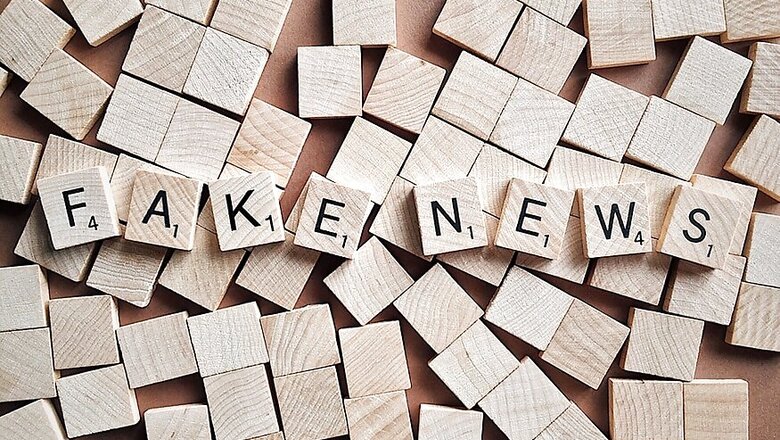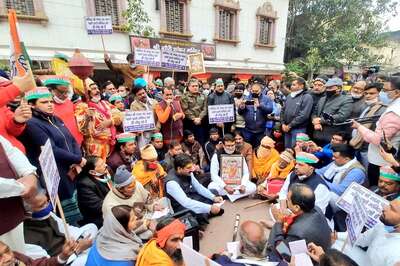
views
New Delhi: For a moment, even if we keep the unprecedented Government of India regulation attempting to disaccredit journalists vouching for ‘fake news’ aside, India has never really fared well either in World Press Freedom indexes or is often bogged down by legislation and rules which muzzle the freedom of media.
Just to recap, according to World Press Freedom Index of 2017, India ranked at 136 on the list consisting of 180 countries. Slipping down three ranks this time, in 2017, India ranked at 133. Among India's neighboring countries, Pakistan ranks 139, Sri Lanka at 141, Afghanistan at 120, Bangladesh at 146, Nepal at 100, Bhutan at 84 and China is ranked at 176.
But are there laws in India which mandate direct control or government interference in press? No. There are no such laws but the problem in India is issuance of guidelines and regulations or a regulatory structure that is marred with loopholes.
One of the biggest problems faced by a journalist today, from a legislation point of view, is the danger of facing defamation charges while working on a story.
Section 499 of the Indian Penal Code is often resorted to for levelling charges of Criminal defamation on journalists. This provision allows anyone believing to have his reputation harmed file a case and sue for defamation.
In India we have cases where people have sued journalists or media organisations for crores of rupees after a publication of news report brushed them on the wrong shoulder.
As of today, Tathagata Satpathy, a Member of Parliament, is spearheading a campaign to make defamation laws in accordance with the progressing socio-economic scenarios.
India also lacks any law which provide protection to a journalist wishing to keep his sources private. For a journalist having a source and protecting it is a sacrosanct business but there are currently no laws in India which allows a journalist to keep their source private.
If in such a case, a court requires a reporter to disclose their source, then in event of non-disclosure, the reporter can be held in contempt of court.
This apart India has faced a series of serious attacks on journalists over the last couple of years. The most recent of them after the Gauri Lankesh murder, was of a journalist who was run over by a dumper in Madhya Pradesh's Bhind district.
The scribe had been reporting on illegal sand mining in the area and had also filed a complaint citing a threat to his life, after he conducted a “sting operation” against a police officer. The video, aired on the news channel Sharma worked with, showed the policeman “hand in glove” with the sand mafia.
Section 5 of the Cable Television Networks (Regulation) Act, 1995 and the Cable Television Network Rules (hereafter the Cable Television Networks Act), stipulates that no programme can be transmitted or retransmitted on any cable service which contains anything obscene, defamatory, deliberate, false and suggestive innuendos and half-truths.
The Rules prescribes a programming code to be followed by channels responsible for transmission/re-transmission of any programme.
The programme code restricts airing of programmes that offend decency or good taste, incite violence, contains anything obscene, defamatory, deliberate, false and suggestive innuendos and half-truths, criticizes, maligns or slanders any individual in person or certain groups, segments of social, public and moral life of the country and affects the integrity of India, the President and the judiciary.
The programme code provided by the Rules is exhaustive. The Act empowers the government to restrict operation of any cable network it thinks is necessary or expedient to do so in public interest.
Also, even the Supreme Court has time and again put curbs on the way media works. Though press derives freedom from the Constitution on the touchstone of Freedom of Speech and Expression, still media often took on cases and attempted to unearth evidences in order to expedite the justice mechanism, but this has often been branded as ‘media trial.’
According to Justices P. Sathasivam and Swatanter Kumar of the SC, “freedom of speech has to be carefully and cautiously used to avoid interference in the administration of justice. If trial by media hampers fair investigation and prejudices the right of defence of the accused it would amount to travesty of justice.”




















Comments
0 comment